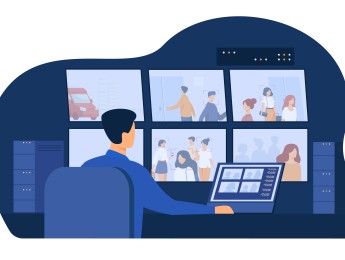Social media has transformed how people communicate, share, and learn — and education is no exception. When used thoughtfully, platforms like Facebook, Instagram, LinkedIn, YouTube, and others can enhance engagement, foster collaboration, and extend learning beyond the classroom walls.
This course equips educators and trainers with the skills and strategies to integrate social media effectively into teaching and learning. Participants will explore creative, ethical, and practical ways to leverage these tools to connect with learners, enrich content, and build vibrant learning communities.
By the end of this course, participants will be able to:
- Understand the role and potential of social media in education today.
- Identify appropriate platforms and tools for specific teaching and learning goals.
- Design engaging learning activities and content using social media features.
- Encourage collaboration, peer-to-peer learning, and knowledge sharing online.
- Manage privacy, safety, and ethical considerations when using social media.
- Evaluate the impact of social media integration on learner outcomes.
This course is ideal for:
- Teachers and lecturers at all levels.
- Trainers and facilitators in corporate or community education.
- Instructional designers and e-learning developers.
- School and university administrators exploring digital engagement.
- Education technology specialists and consultants.
- Anyone interested in making learning more interactive and connected.
The course combines expert-led presentations, live demonstrations, case studies, group discussions, and hands-on practice. Participants will explore real examples of social media use in education and design their own plans to implement in their contexts.
Day 5 of each course is reserved for a Q&A session, which may occur off-site. For 10-day courses, this also applies to day 10
Section 1: Understanding Social Media in Education
- The rise of social media and its relevance to modern learners.
- Benefits and challenges of using social media for teaching and learning.
- Case studies of successful social media integration in education.
- Activity: Reflect on your current use of social media and identify opportunities.
Section 2: Choosing the Right Platforms and Tools
- Overview of popular platforms: Facebook, Instagram, YouTube, LinkedIn, Twitter, TikTok, and more.
- Matching platform features to educational goals and audiences.
- Understanding the differences between public, private, and closed groups.
- Activity: Map your learners and objectives to suitable social media platforms.
Section 3: Designing Engaging Learning Experiences
- Creating and curating meaningful content for social media.
- Using stories, live videos, polls, challenges, and hashtags to engage learners.
- Facilitating discussions, debates, and collaborative projects online.
- Encouraging user-generated content and peer-to-peer interaction.
- Workshop: Design a social media–enhanced lesson or activity.
Section 4: Managing Risks and Encouraging Responsible Use
- Addressing privacy, digital citizenship, and online etiquette.
- Protecting students’ and teachers’ digital identities.
- Dealing with inappropriate behaviour, trolling, and cyberbullying.
- Setting clear guidelines and boundaries for social media use.
- Activity: Draft a social media policy or agreement for your learners.
Section 5: Measuring Impact and Sustaining Engagement
- Monitoring engagement and participation on social media.
- Collecting feedback and making adjustments to improve effectiveness.
- Building long-term online learning communities.
- Sustaining motivation and preventing “digital fatigue.”
- Final project: Present a comprehensive plan for integrating social media into your teaching or training.
Upon successful completion of this training course, delegates will be awarded a Holistique Training Certificate of Completion. For those who attend and complete the online training course, a Holistique Training e-Certificate will be provided.
Holistique Training Certificates are accredited by the British Accreditation Council (BAC) and The CPD Certification Service (CPD), and are certified under ISO 9001, ISO 21001, and ISO 29993 standards.
CPD credits for this course are granted by our Certificates and will be reflected on the Holistique Training Certificate of Completion. In accordance with the standards of The CPD Certification Service, one CPD credit is awarded per hour of course attendance. A maximum of 50 CPD credits can be claimed for any single course we currently offer.
- Course Code IND08-117
- Course Format Classroom, Online,
- Duration 5 days













